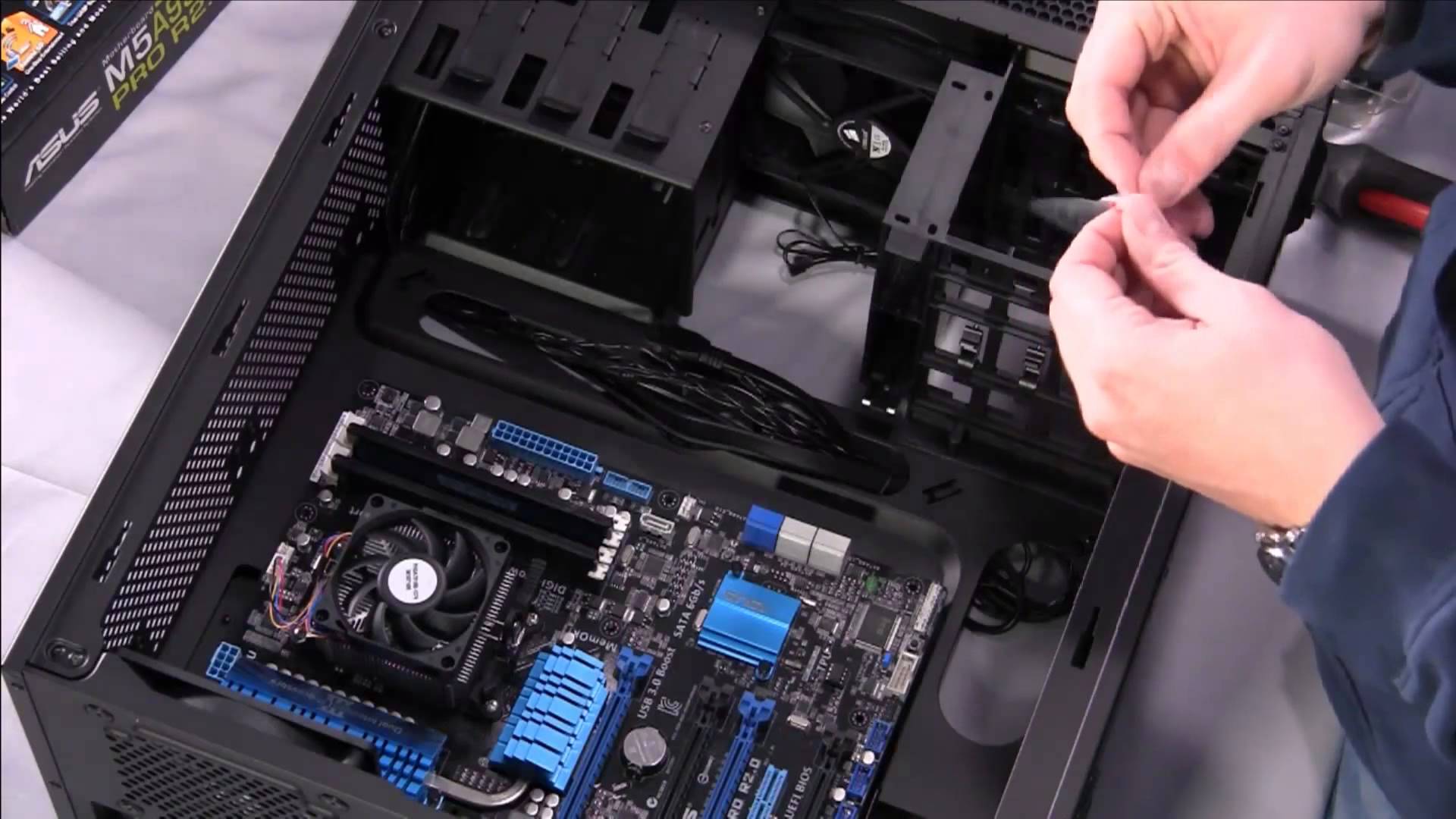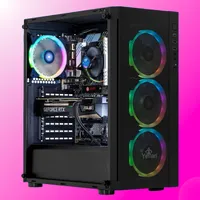ChatGPT vs DeepSeek: which AI can build me a better gaming PC?
Is this new Chinese AI coming for OpenAI's lunch?

Keep up to date with the most important stories and the best deals, as picked by the PC Gamer team.
You are now subscribed
Your newsletter sign-up was successful
Want to add more newsletters?

Every Friday
GamesRadar+
Your weekly update on everything you could ever want to know about the games you already love, games we know you're going to love in the near future, and tales from the communities that surround them.

Every Thursday
GTA 6 O'clock
Our special GTA 6 newsletter, with breaking news, insider info, and rumor analysis from the award-winning GTA 6 O'clock experts.

Every Friday
Knowledge
From the creators of Edge: A weekly videogame industry newsletter with analysis from expert writers, guidance from professionals, and insight into what's on the horizon.

Every Thursday
The Setup
Hardware nerds unite, sign up to our free tech newsletter for a weekly digest of the hottest new tech, the latest gadgets on the test bench, and much more.

Every Wednesday
Switch 2 Spotlight
Sign up to our new Switch 2 newsletter, where we bring you the latest talking points on Nintendo's new console each week, bring you up to date on the news, and recommend what games to play.

Every Saturday
The Watchlist
Subscribe for a weekly digest of the movie and TV news that matters, direct to your inbox. From first-look trailers, interviews, reviews and explainers, we've got you covered.

Once a month
SFX
Get sneak previews, exclusive competitions and details of special events each month!
DeepSeek, the new Chinese AI chatbot, has had a major effect on the AI landscape (and the stock market) thanks to how efficient it is, and the fact it's open source. However, as someone who cares more about PC gaming and how the AI can work for me, I decide to test it only way I knew how, by testing its PC building advice.
I thought it apt to compare whatever a free user would get with both chatbots. That's DeepSeek R1 and ChatGPT 4o/4o mini. Though for the record, ChatGPT has a new and improved o1 model in the works, which DeepSeek claims comparative performance to, it's just not available yet. As well as this, DeepSeek's R1 model requires an internet connection and needs to be activated, so many first-time users will actually be using the older model.
With my two AI friends (foes?) at hand, I sought some buying advice. My first question: Can you build me a gaming PC for $1000?
First using ChatGPT's 4o mini model and DeepSeek (without R1 reasoning), both recommended an RTX 30-series graphics card in response. That's not a good graphics card to buy in 2025, so that's a bad start on both counts. There's almost no reason to go back to the RTX 30-series these days, especially when you aren't really making any savings from retailers compared to newer cards. Perhaps if you found a scorcher of a deal you could justify this decision, but it's not good advice for an AI to give you. It's essentially saying: 'Hope for a miracle!'
Both AI recommended a Ryzen 5 chip, a B550 motherboard, 16 GB of DDR4 RAM, and 1 TB of SSD storage. Though ChatGPT recommended a Kingston NV2 (for shame), which is an infamously inconsistent SSD. While altogether quite reasonable, they're pretty basic picks.
But I'm yet to activate DeepSeek's secret weapon. Its reasoning model, which requires an internet connection, and gives the model time to 'think'. With this, DeepSeek became a bit more impressive. This is still a free model, by the way, it's just not activated when you first boot the chatbot. After 25 seconds of 'thinking', it gave me an entire page of reasoning for its PC build, making justifications for its recommendations and considering compatibility.
I watched as DeepSeek made choices then 'questioned' itself—though it is all for show. We also asked the AI if this reasoning was real, and the actual behind-the-scenes process to its answer generation, and it told us it wasn't.
Keep up to date with the most important stories and the best deals, as picked by the PC Gamer team.
"The model has no consciousness, internal dialogue, or parallel processors; it's purely a sequence of mathematical operations transforming input into output," the machine told us.
What a way to ruin the magic.
Anyways, I asked DeepSeek to create a gaming PC build for around $1,000. Here's my prompt:
| Model | DeepSeeker R1 | ChatGPT 4o |
| GPU | AMD Radeon RX 7700 XT | AMD Radeon RX 7600 XT |
| CPU | AMD Ryzen 5 7600 | AMD Ryzen 5 5600 |
| Motherboard | MSI B650M Pro | MSI B550M Pro |
| Memory | Corsair Vengeance 16 GB | Teamgroup T-Force Vulcan Z 15 GB |
| Storage | Crucial P3 Plus 1 TB | Crucial P3 Plus 1 TB |
| PSU | 600W gold certified | Corsair CX650M (80+ Bronze) |
| Case | NZXT H510 Flow | Montech X3 Mesh |
| Extras | None | Thermalright CPU contact frame, Arctic P12 PWM fan |
The rig that DeepSeek recommended has an AMD Ryzen 5 7600, Radeon RX 7700 XT GPU, MSI B650M Pro motherboard, 16 GB of Corsair Vengeance RAM, a 600 W gold certified PSU, NZXT H510 Flow case, and Crucial P3 Plus 1 TB SSD.
I then asked the same question of ChatGPT 4o, which you gain limited access to when you make an account with OpenAI. It suggested a Ryzen 5 5600, AMD Radeon RX 7600 XT, MSI B550M Pro motherboard, 16 GB of Teamgroup T-Force Vulcan Z 16 RAM, Corsair 650W PSU, Montech X3 Mesh case, and the same SSD as DeepSeek. It also recommended a Thermalright CPU contact frame and an extra Arctic P12 PWM fan.
Interestingly, when I fed both rigs into ChatGPT and asked it to compare them, DeepSeek's was effectively deemed the winner for anyone with the budget. It said DeepSeek's rig is "building for performance longevity rather than immediate savings."
Case closed, DeepSeek performed better. Or did it?
I'd recommend neither build and here's why. The DeepSeek PC actually requires a 700 W PSU as a minimum, as stated by AMD for the RX 7700 XT. Oopsie. Both builds also recommend a PCIe 3.0 SSD, which is a weird choice when PCIe 4.0 drives are so cheap and plentiful in the market. Plus ChatGPT's PC has a contact frame which isn't at all required for an AMD chip, and I don't think there's even an AM4-compatible one available. That's just a waste of cash, which isn't acceptable for a build on a budget.
So there you have it, buying a gaming PC based on an AI recommendation is never a smart move. Still, DeepSeek is an impressive imitator of ChatGPT and almost indistinguishable from an end-user perspective. You may be able to hone either AI's choices into something usable but, at that point, why not just listen to your friendly neighbourhood PC Gamer writer instead? Our choices for the best gaming PCs actually work.
Best gaming PC: The top pre-built machines.
Best gaming laptop: Great devices for mobile gaming.

James is a more recent PC gaming convert, often admiring graphics cards, cases, and motherboards from afar. It was not until 2019, after just finishing a degree in law and media, that they decided to throw out the last few years of education, build their PC, and start writing about gaming instead. In that time, he has covered the latest doodads, contraptions, and gismos, and loved every second of it. Hey, it’s better than writing case briefs.


